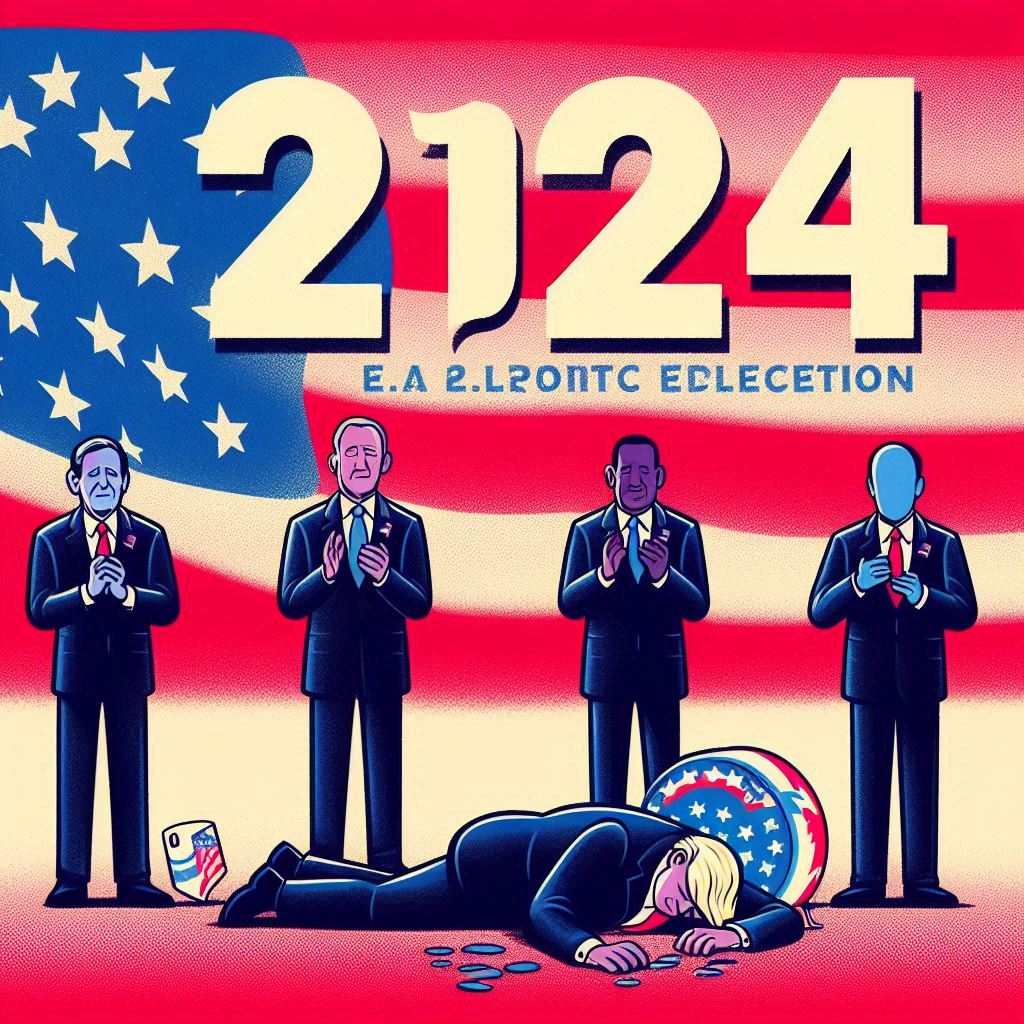川普贏得2024總統大選,分析原因跟未來影響
川普在2024年的總統選舉中成功擊敗民主黨候選人卡瑪拉·哈里斯,這反映一系列複雜的原因,以及美國政治、社會和國際情勢的多重變化。以下從一些原因和未來影響進行詳細分析:
經濟與民生議題的優先地位:川普過去以“美國優先”政策而著稱,並在2020年疫情前的經濟表現得到許多支持者的肯定。在經濟議題上,他強調減稅和放寬企業監管,以促進美國的經濟增長。2024年的選民因為高通脹或經濟增長放緩而感到不滿,他再次利用經濟議題來吸引選票。這種選戰焦點,特別是針對中產階級和藍領階層的承諾,可能比哈里斯較進步的社會議題更為有力。
選民對現任政府的不滿:選民的「對現狀不滿」在美國選舉中往往是決定性因素。選民認為拜登和哈里斯政府在處理經濟、移民、氣候變遷或國內治安等方面表現欠佳,而將票投給川普,視之為「變革」的象徵。川普以直言不諱、反建制的形象,常受到想要快速改變的選民青睞。
媒體策略與社交媒體的影響力:川普擅長運用社交媒體來直接與支持者互動,並有效引導公共輿論。相比哈里斯,川普在媒體上的能見度和話題性更強,能以更快的速度引發討論並擴散支持。這讓他能輕易吸引中間選民或游離選民的注意力,進而影響選舉結果。
國家安全與移民政策的強硬立場:川普一向主張強硬的邊界安全與移民政策,這對於部分選民特別有吸引力。隨著移民議題在美國成為高度關注的議題,他對非法移民的零容忍態度可能引起部分選民的支持。反觀哈里斯和民主黨的政策更開放且包容,這在一些選民眼中可能被解讀為軟弱或不夠保護國家安全。
選民對於社會議題的保守反應:川普的支持者中有不少人反對美國快速的社會進步和文化變遷。相比之下,哈里斯較多集中於進步的社會政策,尤其是在性別、種族和LGBTQ+權益等議題上。若社會保守派選民認為這些政策改變太快且無法適應,他們可能會傾向支持川普的保守立場,以保持社會穩定和傳統價值觀。
對美國與世界的影響
美國的內部撕裂或加劇:川普的再次當選會進一步加劇美國的政治分裂。在他上任期間,他的政策經常引發爭議,並激化不同群體之間的衝突。尤其是他可能恢復一些更保守的政策,這可能會在進步派和保守派之間拉開更大鴻溝,導致更多社會抗議和對立。
外交政策的強硬轉向:川普的外交政策一向以單邊主義和貿易保護主義著稱。再次當選,將會減少對盟國的支持,並強調「美國優先」,這可能導致美國與歐洲及其他盟國的關係緊張。此外,川普在與中國、俄羅斯等大國的關係上傾向強硬,這可能會對全球經濟和政治局勢產生重大影響。特別是他若繼續推動美中貿易戰,可能會增加國際市場的不穩定性。
對環境政策的影響:川普過去曾宣布退出巴黎協定,並表示懷疑氣候變遷的科學依據。如果他再次當選,會減少對環境保護的投入,並偏重於傳統能源產業的發展。這將直接影響全球減碳的努力,對應對氣候變遷造成挑戰。
貿易與經濟的變數增加:川普的政策往往偏向保護主義,並對自由貿易持謹慎態度。將會繼續增加對一些國家產品的關稅,或限制與特定國家的貿易關係,特別是中國。這會導致國際貿易格局不穩定,甚至可能觸發全球供應鏈的重新調整,進一步影響全球經濟的增長。
對全球民主發展的影響:川普的外交立場過去較少關注全球人權或民主議題,更多關注美國的短期利益。如果他再次當選,可能會減少對民主發展的支持,影響部分國家的民主進程。對於美國的全球領導地位而言,這可能會降低其「民主捍衛者」的形象,也可能促使其他大國進一步擴大他們在國際舞台上的影響力。
總而言之,川普在2024年擊敗哈里斯成功連任,將帶來顯著的國內外影響。美國內部可能面臨更多的分裂,且會有政策大幅度的轉向。
If Trump succeeds in defeating Democratic candidate Kamala Harris in the 2024 presidential election, it would reflect a complex set of reasons along with significant shifts in U.S. politics, society, and international affairs. Below is a detailed analysis of some of the reasons and future impacts:
Prioritization of Economic and Livelihood Issues
Trump is well-known for his "America First" policy, and his pre-2020 pandemic economic performance earned praise from many supporters. On economic issues, he emphasizes tax cuts and deregulation to stimulate U.S. economic growth. In 2024, voters dissatisfied with high inflation or a slowdown in economic growth may once again be drawn to Trump’s economic agenda. This focus on economic promises, particularly those aimed at the middle and working classes, could be more compelling than Harris’s progressive social issues.
Voter Dissatisfaction with the Current Administration
In American elections, voter dissatisfaction with the status quo is often decisive. Many voters may feel that the Biden-Harris administration has not performed well in managing the economy, immigration, climate change, or domestic security and thus cast their votes for Trump as a symbol of “change.” Trump's outspoken, anti-establishment image often appeals to voters who desire swift transformations.
Media Strategy and Social Media Influence
Trump excels at using social media to interact directly with supporters and effectively shapes public opinion. Compared to Harris, Trump has a stronger media presence and generates more controversy, which allows him to attract attention more quickly, sway discussions, and build support. This enables him to easily draw the attention of swing or undecided voters, potentially influencing election results.
Strong Stance on National Security and Immigration Policy
Trump has consistently advocated for strong border security and strict immigration policies, which appeal to some voters. As immigration has become a highly visible issue in the U.S., his zero-tolerance stance on illegal immigration may resonate with certain voters. On the other hand, Harris and the Democrats’ more open and inclusive policies could be perceived by some as weak or insufficient in protecting national security.
Conservative Reaction to Social Issues
Among Trump’s supporters, many oppose the rapid social progress and cultural changes in the U.S. In contrast, Harris focuses more on progressive social policies, especially concerning gender, race, and LGBTQ+ rights. If socially conservative voters feel these policies are changing too quickly and are difficult to adapt to, they may lean towards Trump’s conservative stance, which seeks to maintain social stability and traditional values.
Impact on the United States and the World
Intensified Political Division in the U.S. Trump’s reelection would likely further deepen political divisions within the U.S. During his previous tenure, his policies often sparked controversy and intensified conflicts between various groups. In particular, he may restore some more conservative policies, which could widen the gap between progressives and conservatives, leading to increased social protests and opposition.
Shift Towards a More Assertive Foreign Policy Trump's foreign policy has been characterized by unilateralism and trade protectionism. If reelected, he may reduce support for allies and emphasize “America First,” potentially straining U.S. relations with Europe and other allies. Additionally, Trump’s tough stance towards major powers like China and Russia could have significant impacts on global economic and political dynamics. If he continues to push for a U.S.-China trade war, it could contribute to global market instability.
Impact on Environmental Policy Trump previously announced a withdrawal from the Paris Agreement and expressed skepticism about the scientific basis of climate change. If reelected, he would likely reduce investments in environmental protection and favor traditional energy industries, directly affecting global efforts to reduce carbon emissions and presenting a challenge in combating climate change.
Increased Uncertainty in Trade and Economics Trump’s policies often lean toward protectionism, and he holds a cautious stance on free trade. He may continue to increase tariffs on products from certain countries or restrict trade relations with specific nations, particularly China. This could destabilize the international trade landscape and potentially trigger a realignment of global supply chains, further impacting global economic growth.
Impact on Global Democratic Development In the past, Trump’s foreign stance has paid less attention to global human rights or democratic issues, focusing more on America’s short-term interests. If reelected, he might reduce support for democratic development, affecting the democratic progress of certain countries. For the U.S.’s global leadership, this could weaken its image as a “protector of democracy” and potentially encourage other major powers to expand their influence on the international stage.
In conclusion, if Trump successfully defeats Harris in 2024, it would have significant domestic and international impacts. The U.S. may face increased internal division and a major shift in policies.

照片:DALLE3
- 1
- 2
- 3
- 4
